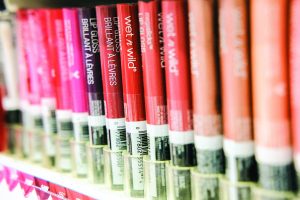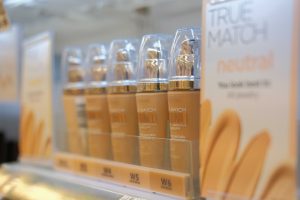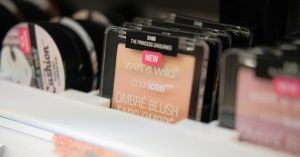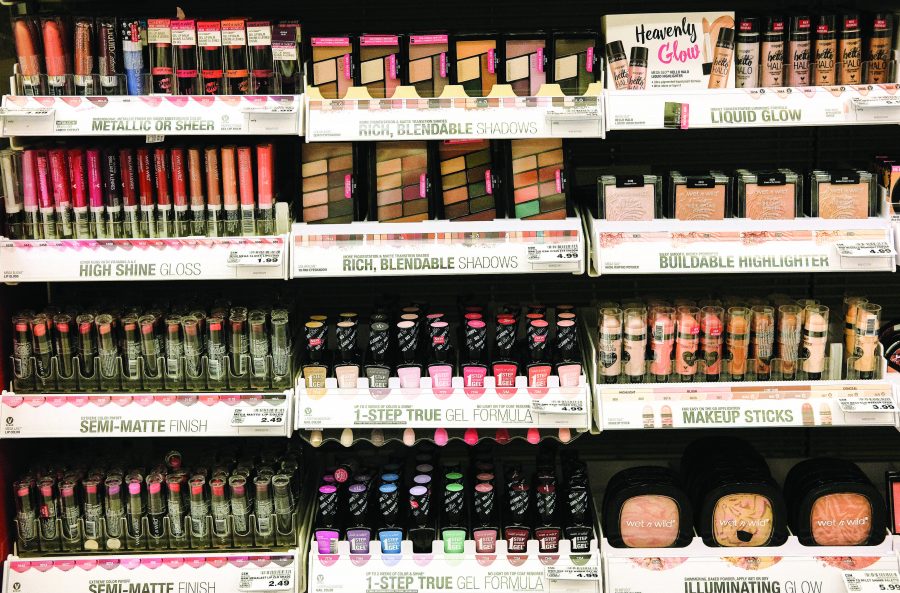Over the last several years there has been a massive push to make more ethical choices, especially when it comes to makeup and beauty products. This trend can be seen most evidently on YouTube, where many lifestyle and beauty vloggers have started to solely use and advocate for cruelty-free products. In 2016, many YouTubers such as Hannah Witton made “how cruel is my makeup bag” videos where they went through and looked up the products they currently owned to help themselves make more informed choices in the future.

Of course making more ethical purchases is often easier said than done. When it comes to cruelty-free products, there aren’t strict guidelines for what makes a product cruelty-free or not. A company may state their product isn’t tested on animals, but they could be owned by parent company who does conduct animal testing. It gets even murkier when dealing with regulations from other countries. In the United States, animal testing is neither banned nor required for beauty products on a federal level (although some states have banned the practice). By contrast, China requires animal testing for all cosmetics sold or produced in the country. Some companies like Dove claim their products are cruelty-free when in fact they do test the products they sell to China on animals.
Lack of regulation is part of what makes animal testing a topic of concern. The animals used in cosmetics testing are often confined in too-small cages and endure tragically inhumane conditions. “It’s unnecessary and cruel,” said Jaqueline Marroquin, a business administration major at the U. “It’s hard to imagine the pain that these animals go through and how they just have to sit there and endure it.”
What’s so aggravating about animal testing as a practice is how prevalent it still is in 2019 when there are valid alternatives. There are many testing options which eliminate the unusually cruel practices of animal testing such as in vitro testing, cell culture testing and computer models. But really, testing shouldn’t be necessary at all. We have already proven the safety of thousands of ingredients used in cosmetics, so further testing should no longer be necessary.

Marroquin said she first started doing research and transitioning to cruelty-free beauty products at 14. “I was watching videos produced by PETA about animal testing, and I just knew I had to change what products I was using.” As with any major lifestyle changes, the initial research can be difficult, but once you learn what brands are cruelty-free, it becomes easier to stick with it long-term. “It’s also no longer an impossible goal to achieve because there’s so many drugstore and high-end options that are cruelty-free,” said Marroquin.
If you’re looking to go cruelty-free in the new year, there are plenty of high-quality and often affordable brands who forgo animal testing. Lush is a great option, especially if you’re looking for a store where you can buy all of your body and beauty products in one place. From makeup and lotion to shampoo and deodorant, Lush has it all. Lush is constantly striving to create sustainable and ethical products, not just cruelty-free ones. The company often campaigns with charities, and they work hard to eliminate or recycle the packaging for their products. The downside to Lush is their products are a bit pricier than other brands.

For an affordable and cruelty-free makeup brand, E.L.F. is a great choice. E.L.F. is completely cruelty-free and vegan. On top of their already affordable makeup line, E.L.F. offers a 15 percent discount to students when you purchase their products online. The trade-off with E.L.F. is they typically have fewer color options and are a little lower quality than other makeup brands. A good middle ground is NYX. Their products tend to be a little more expensive than E.L.F. but they’re still really affordable. The quality is also a little better and they carry a wider color palette. However, while NYX is cruelty-free, their parent company, Loreal, is not. So if you want to avoid any connection to animal testing, you may want to consider a different option.
A great resource for finding cruelty-free brands is Tashina Combs’ website Logical Harmony. Combs does an insane amount of research to create an up-to-date list of cruelty-free brands. Her list includes all relevant information about different brands, including if their products are vegan or if they’re owned by a company conducting animal testing. She also has an up-to-date list of brands to avoid and brands who have declined comment so their cruelty-free status is undetermined.



Craig Shapiro • Jan 23, 2019 at 12:57 pm
Yes, yes, yes! And while you’re at it, think about what you eat, wear and what passes for “entertainment,”
Kim Marie • Jan 23, 2019 at 12:54 pm
It’s so easy to shop for cruelty-free products these days that there is simply no reason to support barbaric testing on animals.
AMD • Jan 23, 2019 at 12:54 pm
It’s so important to be cruelty free in all facets of our lives, not just in beauty products. Choosing cruelty free and vegan is a lifestyle choice and it saves countless animals’ lives a year, helps protect our environment and it’s good for our own health, too. What are you waiting for? Go vegan today!
Lucy Post • Jan 23, 2019 at 12:41 pm
Thank you for this. With so many cruelty-free options in every store and price range, there is no excuse for buying products that have been tested on animals.